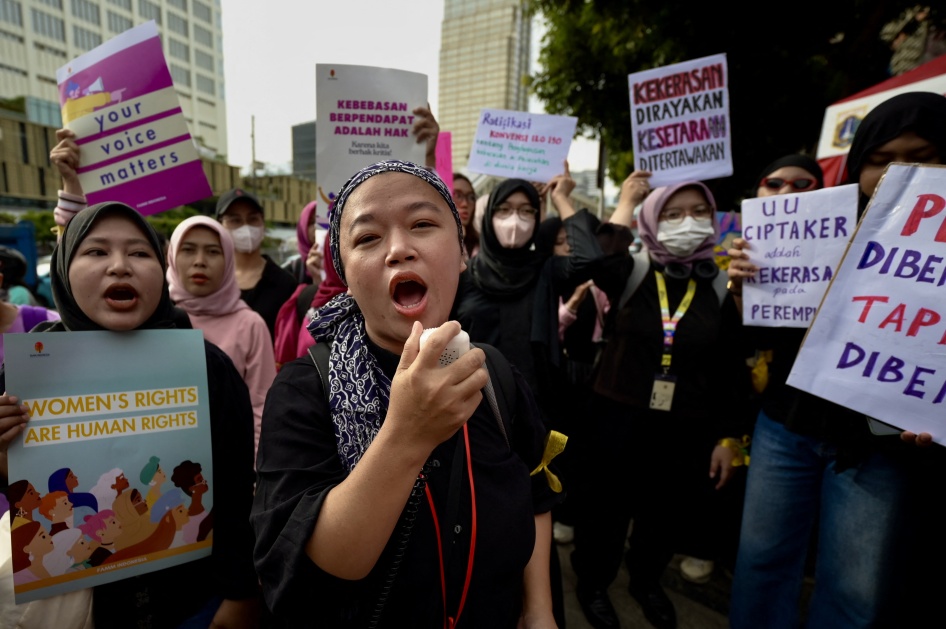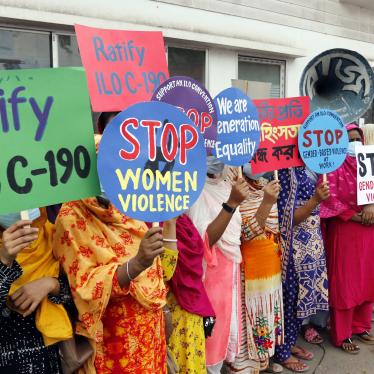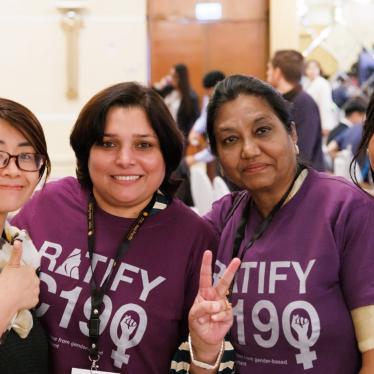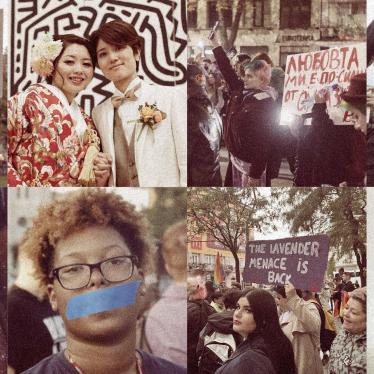Five years ago today, a landmark international treaty was adopted to prevent violence and harassment in the world of work, including by extending legal protections to domestic violence survivors at work.
Domestic violence has long been perceived as a “private” issue. But the International Labour Organization’s (ILO) Convention No. 190 on Violence and Harassment, referred to as C190, explicitly notes that domestic violence affects the health and safety of workers, and calls on governments, employers, and workers’ organizations to mitigate its impact in the world of work.
Women’s rights activists and trade unions have long advocated for treating domestic violence as a workplace issue. Data around the world supports this, including a global study by the Trades Union Congress that showed that more than 80 percent of survey respondents who experienced domestic violence also reported that it negatively affected their work performance. Career consequences of domestic violence range from absenteeism to poor work performance to some survivors losing their jobs.
Domestic violence can even follow a survivor to work in the form of stalking, threats against co-workers, or physical violence. C190 calls on employers to mitigate domestic violence by providing paid leave for victims, flexible work arrangements, temporary protections against dismissal, inclusion of domestic violence in workplace risk assessments, and awareness-raising in the organization.
Last December, I heard firsthand from garment workers I interviewed in Indonesia how they, or other garment workers they knew, were both their families’ primary breadwinners and domestic violence survivors – their partners attempted to control them and their wages through violence. One worker said domestic violence is an open secret in her village, accepted as part of being a married woman and a breadwinner.
Indonesia has yet to ratify C190, although Indonesian civil society groups, like Perempuan Mahardhika, have been strong advocates for such ratification. They are also pushing the Indonesian government to adopt a more holistic approach to tackling domestic violence.
Ratifying C190 is an opportunity for governments to advance legal protections for workers experiencing domestic violence. In just five years, 44 countries have ratified C190. These countries understand that to end domestic violence and reduce its impact at work, governments, employers, and workers’ organizations need to work together. Indonesia and other countries should follow their example. It will be a first step towards recognizing that employers can help prevent and end domestic violence.









